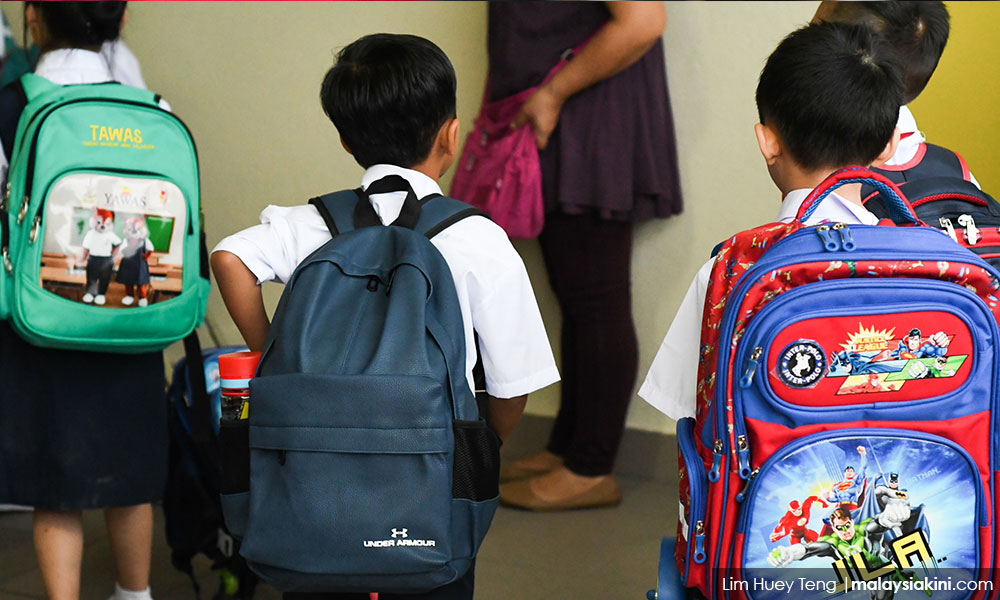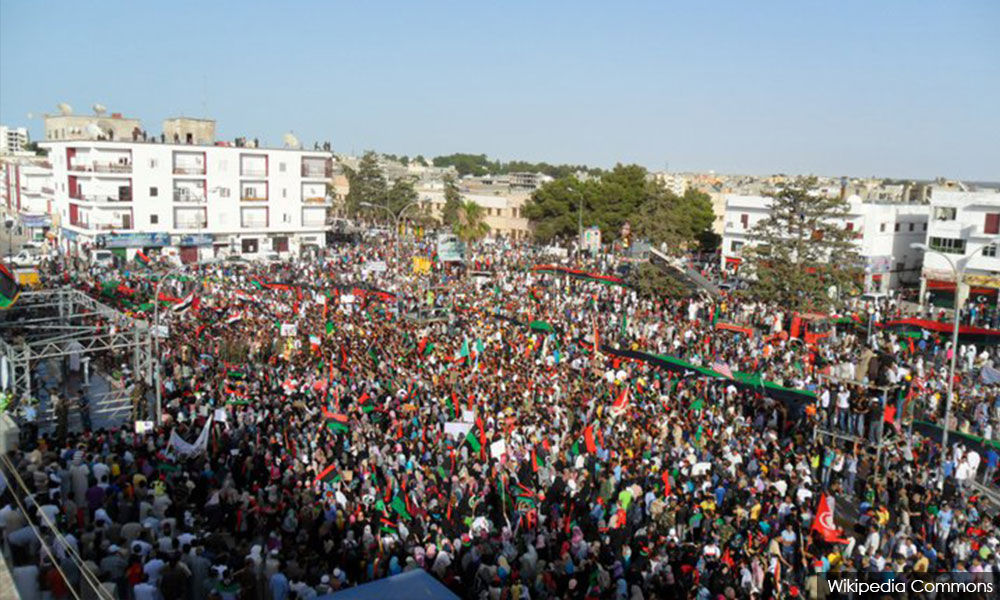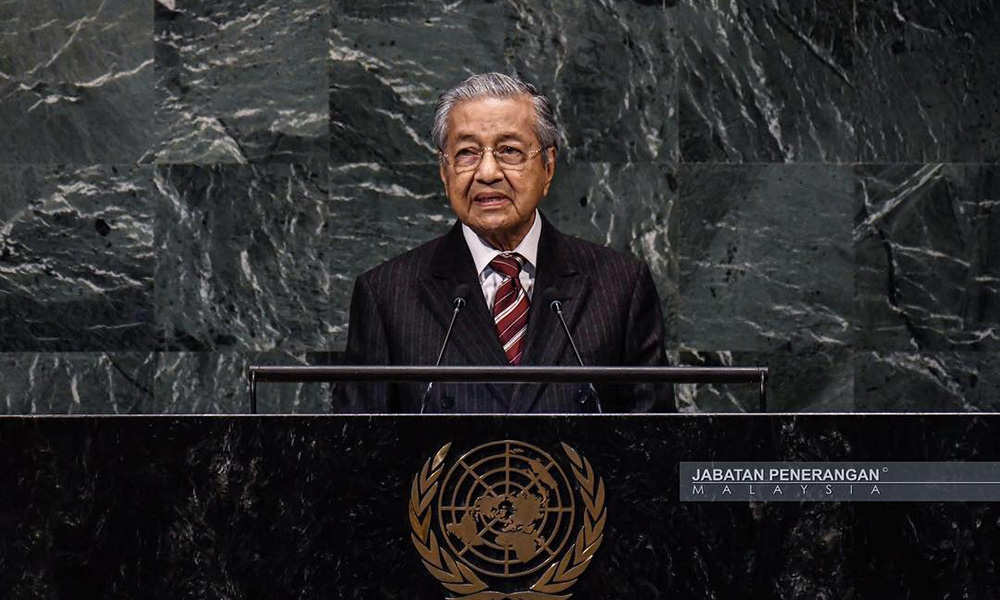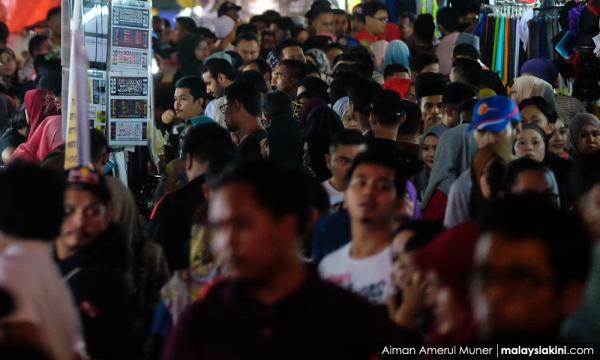COMMENT | Should Malaysia come first or adherence to international treaties?
Someone in the Pakatan Harapan food chain has got the calculations skewed. BN and PAS, which have lost their moral compass – which they didn't have much of to begin with – all of a sudden have felt their way into something resembling a common direction.
But let's revisit how Harapan accidentally crossed the Rubicon during the recent general election, and pushed BN and PAS back into the age of 'hunter-gatherers' – where the latter two only excelled at stealing from what others had reaped.
To date, Malaysia has ratified the Convention on the Rights of the Child (CRC), Convention on the Elimination of All Forms of Discrimination Against Women (CEDAW) and Convention on the Rights of Persons with Disabilities (CRPD).
These templates should be strong enough to build Malaysia from the bottom up. In fact, given the multiracial composition of Malaysia, the forefathers chose the middle way. Not a direct 'no' to human rights, but to build it from the ground up, with a focus on children, women and disabled persons.
Or in other words, the most vulnerable groups, which BN and PAS have neglected. If they swear that they didn't leave these groups behind, how can they explain looking the other way when corruption scandals kept exploding in their midst? They didn't care. The rakyat did, which is how Harapan snatched victory from the jaws of defeat.

In and of themselves, the above international treaties should be good enough. Enough to guide Malaysia further in the direction of becoming a 'responsible stakeholder' on the world stage.
This is even how Islam began. Khadijah, the wife of Prophet Muhammad, became the first Muslim, with Ali, who was barely a teen at the time, following soon after. Abu Bakr, a man without frailties, but who was otherwise advanced in age, accepted Islam too.
This is the middle way of Islam. When a blind man wanted to accept Islam, revelations were revealed by God to urge Muhammad not to exclude this group, too. Especially when the rich and powerful of the Quraisy were not ready to accept Islam yet.
In other Abrahamic religions, the focus on the meek and weak were the priorities, not human beings per se. Thus Moses tried to redeem the Jews who had been enslaved by the Pharoah. Jesus too focused on the blind, the meek and the lepers before guiding his disciples to help the same. Human rights must begin from the bottom up.
Confucius tried to help the kings govern well, but found them apathetic. He turned to teaching a group of roaming students who wanted to know how to be gentlemen scholars, as Tu Weiming affirms in his studies.
In haste
If the above historical examples are not enough, efforts to improve on human welfare and human rights are made on a year-to-year basis, with the Foreign Ministry working with the Human Rights Commission (Suhakam).
Yet, the ministry appears to have done things with much haste with regard to the International Convention on the Elimination of All Forms of Racial Discrimination (Icerd).
With or without the support of Suhakam, Prime Minister Dr Mahathir Mohamad, the Attorney-General's Chambers, and the Foreign Ministry have raced ahead of everyone – leaving Harapan exposed to the incorrect charge that it is cavalier to the Malays and Bumiputeras and natives.
Indeed, out of the nine core international human rights instruments, Malaysia has yet to ratify six. That doesn't make Malaysia a paltry banana republic, especially after May 9 where close to 83 percent of the people exercised their right to end the kleptocracy of the previous administration.
This should also earn Malaysia enormous plaudits. Why? While others fear change, in light of the disaster of Arab Spring, Malaysians chose democracy.

After all, out of the global population of seven billion people, only 4.5 percent have the right to a free and democratic political system.
Wouldn't this suggest that Malaysia has had a paradigm shift? Yes it does, and it did. The shift is also a constant process, it is a gradual osmosis of all that is good and ethical.
But precisely because global events are moving at such speed, wisdom and forethought are needed too.
Any attempt to rush any human rights ratification can be counterproductive, as it involves a swing towards the aggressive civil rights activism of what Anwar Ibrahim called "super liberals".
The latter want full and unfettered protection of the LGBT community – yet there is no telling if the community's agenda knows how to stop at the waters' edge, or will insist on civil union that leads to formal marriage. The West has jumped headfirst into homosexual marriages without even knowing the social implications.
Since no one knows the answer, any ratification of human rights treaties should take the views of the majority into consideration too. And, if the threshold is not kept, there are other activists who would stop at nothing to demand full recognition of human rights at the expense of what is spelt out in the Federal Constitution on the rights of the Malays and natives in Sabah and Sarawak.
Three issues
But the cat has been let out of the bag. Someone in Harapan has highlighted the need to accept and ratify Icerd. Therein lies three issues that the Foreign Ministry now has to solve:
- If the constitutionality of Icerd comes up, and it will, how does the ministry plan to answer it?
- If the concern of being extra-constitutional is not foremost in the mind of the ministry, how does the Attorney-General's Chambers work with the ministry knowing that the latter does not even have a strong international law desk to handle the issue?
- Will any decision makers in Harapan be willing to step aside or down if Icerd continues to create a racial churn in order to relieve the pressure?
So far one sees Minister in the Prime Minister's Department Mujahid Yusof Rawa trying to smooth the feathers ruffled by Icerd, while those who proposed it have remained coyly quiet – when they should be the one defending it.

When Mahathir spoke of the need to ratify the international treaties at the United Nations in September 2018, he didn't necessarily mean all treaties.
If he did, he would not have walked back from the Comprehensive Trans-Pacific Partnership Agreement.
Thus, one should think before one acts. That ought to be the motto of all ministers. The moment one signs up on Icerd or any treaties, the Institutional Reforms Committee should be there to offer some solutions too; especially on which new agency or old institution is most adept at redressing the issues.
Indeed, the parliamentary select committees on the ministry haven't even been approved in full. If they were, the current list did not showcase any human rights or international legal experts. Why then the hurry to embrace Icerd?
The latter is hot potato that the new Harapan government can do without since the coalition is still working on balancing between Malay and Malaysian rights.
Grow up. Don't pander to the instruments of foreign countries. Learn from the rudiments of the Abrahamic religions first.
Before human rights can dominate any discourse, there must be the unity of thought, mind and action, with the divine.
If the latter is missing, human rights become a sheet of paper where every minority insist it must be protected, even children, women and the disabled are cast aside first. How can this be human rights?
RAIS HUSSIN is a supreme council member of Bersatu. He also heads its policy and strategy bureau.
The views expressed here are those of the author/contributor and do not necessarily represent the views of Malaysiakini.


